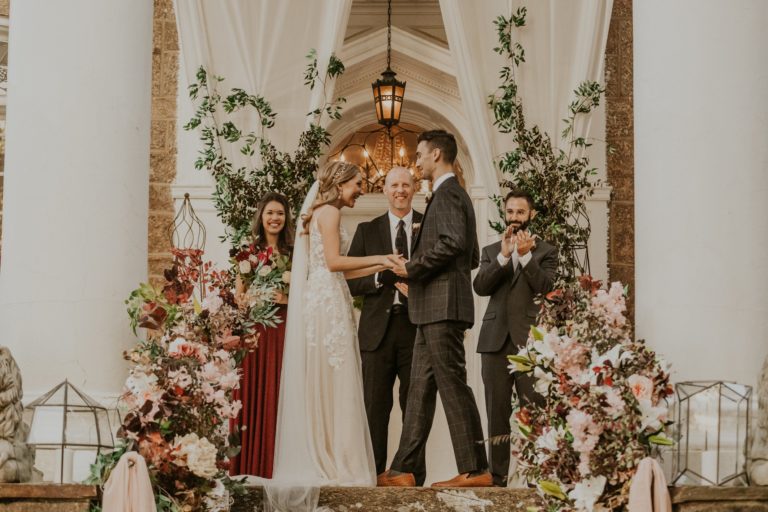Check out Emma’s story of enduring judgment for not fitting gender stereotypes while privately coming to terms with her same-sex sexuality. Pray with us for girls and women in our churches navigating overly-rigid concepts of Christian femininity and parents who struggle to love sexual minority women well.
I’ve known I was gay for as long as I can remember, but it wasn’t until middle school that I was able to understand what was going on and put the word “gay” to the attractions I was experiencing. My same-sex attractions became evident to my parents, too, during my middle-school years. I wore “boy” clothes, made comments about the girls I found attractive, and always had a grimace on my face when they asked if I liked any boys at school. I would try to ease into conversations about the romantic feelings I had toward girls, but, perhaps out of fear, they would quickly interrupt me and change the conversation. The message was clear to me: I had a certain duty as a biological female, and, according to my parents, I was not conducting myself in an appropriate way. I didn’t fit. I didn’t belong.
In an effort to conform me to their image of a normal girl, my parents began taking me to church.
I vividly remember walking into the front entrance of the church the first time we went. We arrived only a few minutes before the beginning of the sermon. There were still many people in the lobby when I came through the doors. A man in a charcoal suit greeted my parents with a warm smile and kindly shook their hands. When I passed by, he looked at me with what seemed like disappointment and confusion, as if he was trying to figure out what I was, probably because I wore baggy khakis, a collared button down, and brown dress shoes. When my parents asked where the youth group was located, a woman said, “He…uh…she? She can come right this way.” I felt sick to my stomach. I was sweating and my heart began to race. I don’t belong here, I thought to myself. God, get me out of this. I hate this. If the adults are making this so awkward, these kids are going to be brutal.
As expected, I was met with looks of disgust. Some kids laughed, others stared in shock. I quickly found an open seat and stared at the ground. “Hello, sir,” a guy mocked. “Ew, oh my god WHAT is that, a heshe!?” I thought if I focused my eyes on something I could prevent the tears from flowing down my cheeks. I just want to die. I hate this. My hands were shaking. It was getting harder and harder to breathe. Their eyes were crawling all over me.
I cannot tell you what section of Scripture was expounded upon that day. I was too preoccupied with my desperate pleas to God begging him to end the service quickly. The weight of judgement from the other kids was too much to bear. I was nauseous; I felt the sharp sting of rejection and hatred in every snicker and frown. They echoed the same message as my parents: “You don’t belong.”
As soon as the hour was over, I ran to the car, tears streaming down my face, feeling more broken than I had ever felt. The spurning from my parents, those church members, and that youth group was not simply a rejection of my clothes, it was a rejection of me. I did not belong. I was not accepted. There was no place for me in their world. Sadly, this was not an isolated incident. Every interaction I had with Christians reminded me that I was seen as a defective model, unworthy of dignity or respect. This was church for me. I have been mocked openly by pastors. I have been made to feel so insignificant, so burdensome that at times I thought, Why even exist? Maybe I’m better off dead. I was unclean; a leper. The message communicated to me over and over again was that I simply did not belong. There wasn’t a place for me amongst them.
Sexuality and gender are hot button issues. And it’s no surprise. The relationship between the two can be complicated. For me, my clothing, voice, hairstyle, and gait plus the comments I made were all symptomatic of the inner struggle of navigating my same-sex attractions and my place in the Church. Of course, none of those things I listed makes someone gay or even means someone is questioning their sexual orientation. But by not fitting the cultural stereotypes of what a woman should look like and how she should act, I was (and am) constantly othered by Christians, and I never felt like I belonged. Gender and sexuality are not as simplistic as we want to make them out to be.
I’ve had many years to process my past experience with that church and other churches like it. As I look back, I wish I had been greeted with a kind smile and the compassion Christ showed to people on the margins. I wish I would have been welcomed regardless of what I was wearing or how I spoke. I wish I had been treated as if I was made in the image of God.
With great polarization inside and outside of the church, I know some Christians can confuse baggy khakis on a middle school girl or the limp wrist of a middle school boy with the latest Hollywood celebrity who has come out as queer. But these middle schoolers aren’t trying to make a statement. They’re desperate to find belonging. Before you allow cultural prescriptions for femininity to creep into your concept of Christian womanhood, please consider this from my sister-in-Christ, Lindsey Snyder:
“A reverent and humble reading of Scripture reveals a meaningful sexual difference between men and women displayed in Christian marriage. There is also indication that men and women reveal different aspects of the image of God individually and in-relation to one another in mysterious ways. But, we would do well to recognize that any prescriptions beyond these merely indicate cultural concepts of gender.
So, pastors and parents, how can we properly teach what it means to be a godly woman? By teaching what it means to be a disciple of Christ. A godly woman is called to repentance and restoration. She is called to surrender her rights for the sake of the Good News Jesus brings. She is to understand that being a woman matters as a reflection of the image of God, most clearly within Christian marriage, but also more mysteriously but just as legitimately in singleness.
Do not burden your children or congregants with extra-biblical pressures of “what it means to be a biblical woman.” Do not add to the already heavy burdens of this world. Encourage the fruits of the Spirit. Live a life of love towards Jesus and others.
“It is for freedom that Christ has set us free. Stand firm, then, and do not let yourselves be burdened again by a yoke of slavery . . . But the fruit of the Spirit is love, joy, peace, forbearance, kindness, goodness, faithfulness, gentleness and self-control. Against such things there is no law.” (Galatians 5:1;22)
That’s what it means to be a man or woman of God.”
I pray that our churches would make space for girls in button-down flannel shirts and baggy khakis, girls who are nauseated from judging stares and snide comments. I pray our church would make space for me.







Shyla Samson
Excellent article! Thank you for sharing your story and bringing a better awareness for us as Believing parents and Believers in the church. So needed!
Pieter Valk
Shyla, we’re so glad to hear that this was helpful! I’ll make sure to pass on the encouragement to Emma 🙂
Brandon
Thank you for the article and to whoever wrote it. I’m sorry for how you were treated by people at church. That’s devastating. Thanks for sharing your story. It helped me want to be more Christ like and to call others out when I see them claiming him but not living like him. Thank you.
Pieter Valk
I’ll make sure to pass the message on to Emma!